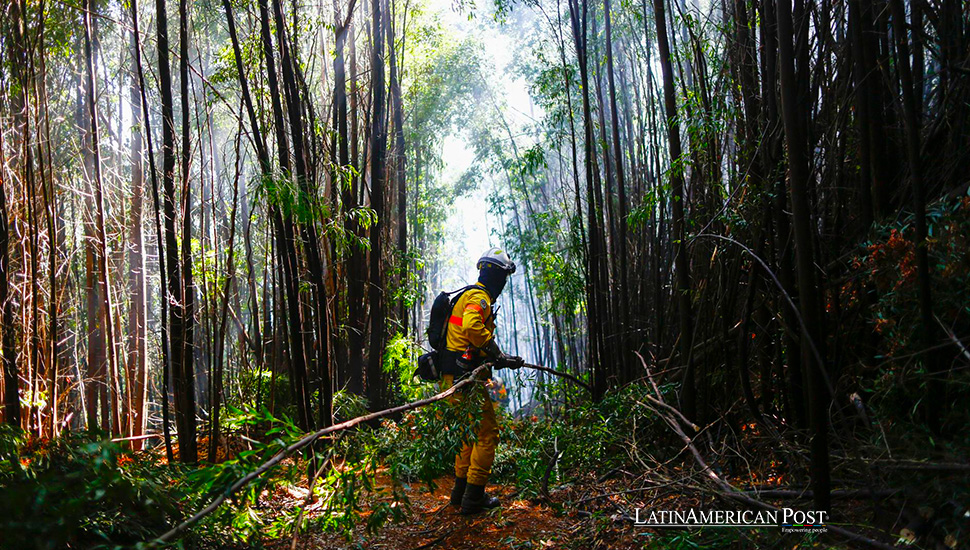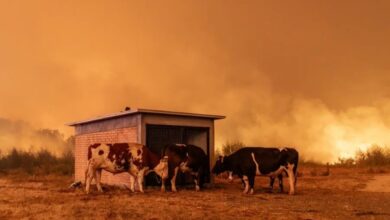Rising Flames, Warming Planet: Chile’s Deadly Wildfires Signal a Harsher Future for Latin America

In the wake of devastating wildfires that claimed at least 133 lives in central Chile, a recent study warns that such catastrophic events are poised to become more frequent across South America as climate change exacerbates global temperatures and aridity.
Unprecedented Wildfires Reveal Dire Climate Crisis
This February, Chile was ravaged by its deadliest wildfires in recent history, eclipsing the fatalities of the 2010 earthquake and highlighting an urgent climate crisis. The blazes, fueled by strong winds and soaring temperatures, tore through communities near Vina del Mar and Valparaiso, leaving a trail of destruction and grief. This tragedy is not an isolated event but a dire warning for the future, according to a new report by World Weather Attribution, which ties the increasing likelihood of such disasters across Latin America to climate change.
The international team of scientists pinpointed the conditions conducive to wildfires, utilizing the Hot Dry Windy Index (HDWI) to assess the interplay between temperature, wind, and humidity. Contrary to initial suspicions, the study concluded that the recent spike in HDWI, and thus wildfire risk, was not directly fueled by global warming or El Niño patterns, given a peculiar regional cooling effect off Chile’s coast. However, the report presents a grim forecast: as global temperatures climb, so will the frequency and intensity of wildfire conditions in regions like Vina del Mar and Valparaiso.
Chile’s plight is a microcosm of Latin America’s broader environmental challenge. Countries from Brazil’s Amazon to the dry forests of Argentina and the plains of Colombia are witnessing the escalating impacts of climate change on wildfire frequency and severity. The Amazon, often dubbed the “lungs of the Earth,” has seen unprecedented fires in recent years, attributed to a combination of deforestation and climatic shifts. Meanwhile, Argentina faced its inferno in the Paraná Delta, exacerbated by prolonged droughts and high temperatures.
Global Warming’s Alarming Trajectory: A Call for Urgent Action
The scientific community warns that the global warming trajectory of 1.2 degrees Celsius above pre-industrial levels already spells increased disaster risk. Should global warming breach the 2 degrees Celsius threshold, the situation will likely deteriorate further, with fire-prone weather intensifying around vulnerable cities. With temperatures potentially soaring up to 2.9 degrees Celsius this century, based on current climate pledges, the urgency for international action has never been more apparent.
Latin America finds itself at a crossroads, confronting the dual threats of natural disaster vulnerability and socioeconomic disparities that magnify the impacts of climate change. The wildfires in Chile underscore the need for comprehensive environmental policies and international cooperation to mitigate these threats. This includes bolstering disaster preparedness, investing in sustainable land management, and enhancing climate resilience across vulnerable communities.
Interconnectedness of Global Environmental Challenges: A Collective Response Required
Moreover, the tragedy in Chile is a stark reminder of the interconnectedness of global environmental challenges. The fight against climate change necessitates a united front, transcending national borders to foster a collective response capable of addressing the root causes of increasing temperatures and their catastrophic consequences.
Also read: Hundreds Still Missing as Chile’s Wildfires Ravage Communities Leaving Death and Desolation
As Latin America reels from the effects of climate change, the international community must heed the warning signs from Chile’s tragic wildfires. Immediate action is required to curb greenhouse gas emissions, protect ecosystems, and prepare for a future where such disasters may become all too common. The memories of those lost in Chile’s flames must catalyze change, inspiring global efforts to forge a more resilient, sustainable world in the face of a warming planet.





